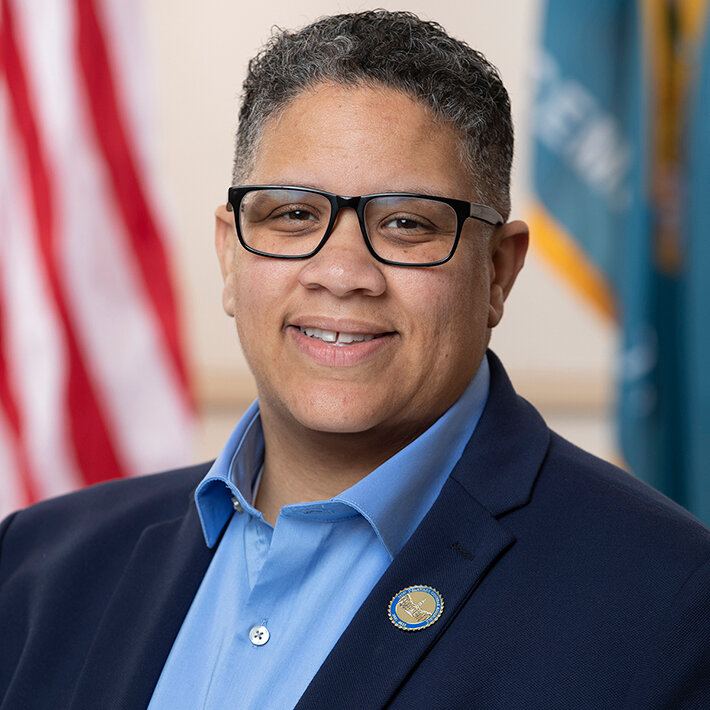Bill to give school districts a choice in paying prevailing wage for construction projects stalls in Delaware House leadership committee
This story will be updated.
DOVER — Democratic and Republican leaders in the House of Representatives rejected a proposal on Wednesday that would have provided Delaware school districts an …

You must be a member to read this story.
Join our family of readers for as little as $5 per month and support local, unbiased journalism.
Already a member? Log in to continue. Otherwise, follow the link below to join.
Please log in to continue |
Bill to give school districts a choice in paying prevailing wage for construction projects stalls in Delaware House leadership committee
DOVER — Democratic and Republican leaders of the House of Representatives rejected a proposal on Wednesday that would have provided Delaware school districts an option to pay prevailing wage for school construction projects.
House Bill 296, sponsored by Rep. Bryan Shupe, R-Milford, faced staunch pushback from union representatives during the public comment portion of the House Administration Committee hearing, as workers said the legislation would negatively impact their wages and ability to provide for their families.
Regarding the bill addressing prevailing wage – which refers to the wage rates for laborers employed on state-funded construction projects that cost over $500,000 — Rep. Shupe explained it was the result of rising cost school construction costs, which have ballooned in recent years due to inflation.
Between fiscal years 2023 and 2024, public school district and charter school projects experienced more than $260 million in market pressure inflation and asked the state to cover more than $175 million of that increase, according to the legislation.
“It does not ban using prevailing wage, it does not prohibit schools from using any companies whether they’re union or non-union; what it does is it allows for school districts to use the same wage rates that municipalities do,” the Milford Republican said.
By allowing districts to have a choice, Rep. Shupe said it allows a decision to be made in consideration of the use of taxpayer dollars and the advantages and disadvantages of using market rate versus prevailing wage.
Speaker of the House Valerie Longhurst, D-Bear, recognized recent attempts to alter the state’s prevailing wage statute, stating that she has a different philosophy on the matter and remained against the initiative.
“I believe in working families and these people, I believe that they’re good paying jobs and they’re able to support their families,” she said. “I’m opposed to the bill.”
Similar to Rep. Shupe’s proposal, former Milford-area Sen. F. Gary Simpson introduced legislation in 2017 that would have provided 3-year prevailing wage exemption for public school construction projects, though the bill never made it out of committee.
Since then, prevailing wages for school construction projects have been 18%-20% higher than market rate over the last five years, Rep. Shupe said.
With these statistics in mind, the Milford lawmaker said his legislation could make up for those rising costs and help the state avoid implementing tax hikes, which would ultimately save money for all Delaware families, including for tradespeople who work on these projects.
House Majority Whip Kerri Evelyn Harris, D-Dover, was also hesitant to support the bill, noting that the state has seen similar fights surrounding minimum wage, though the COVID-19 pandemic highlighted the need to compensate people properly.
“I get the idea that … everybody pays for it, but everybody else pays when workers are underpaid,” Rep. Harris said. “That’s my concern … those same school districts will be hit if parents can’t pay for food, those same school districts will be hit if parents are working two jobs instead of one and are not there to raise their kids.”
Those concerns were echoed by House Minority Leader Mike Ramone, R-Newark, who recognized the need to save money for areas like education but felt there were other ways to achieve that than by impacting trade workers.
The packed House majority caucus room was filled with men donning orange shirts, as members of Delaware Laborers Local 199 came to Legislative Hall in droves to oppose the legislation.
Of those members was Mario Corea, a business agent and executive board member of Local 199, who explained what he and his fellow union members viewed as negative consequences of House Bill 296.
“Giving the choice is essentially taking food out from family’s mouths, family’s homes. You’re putting them in a position where they can’t afford to pay certain things,” Mr. Corea said. “Prevailing wage is a phenomenal thing here in our state.”
After receiving widespread opposition during public comment, the bill was not released from committee, as House Majority Leader Melissa Minor-Brown, D-New Castle, Rep. Harris and Rep. Ramone voted against the proposal.
House Minority Whip Lyndon Yearick, R-Magnolia, voted in favor of the bill’s release from committee, while Speaker of the House Valerie Longhurst, D-Bear, was not present for the roll call vote.







 By
By 



